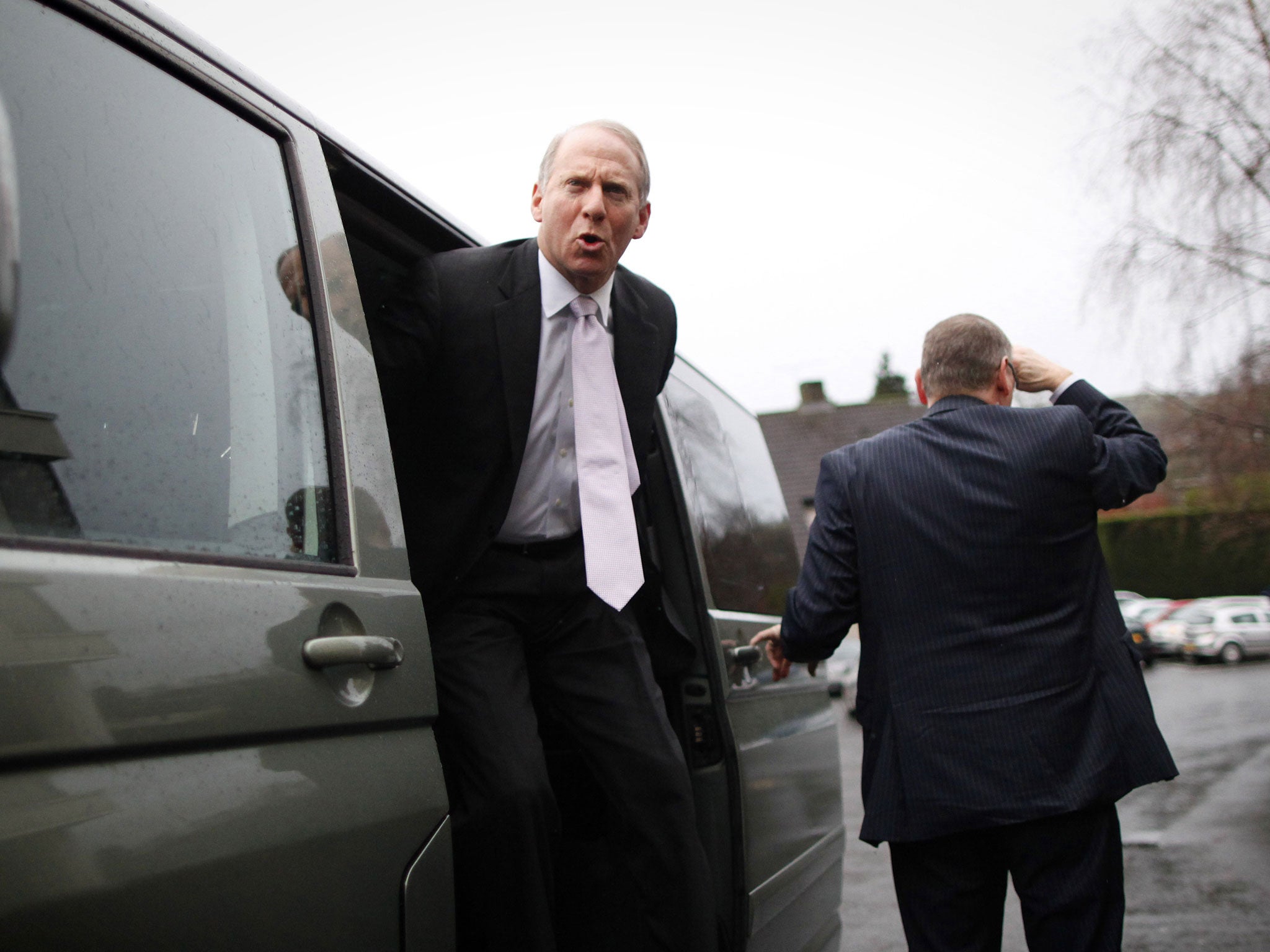Talks on the future of Northern Ireland in balance as time runs out to secure a deal
Negotiators making final push for breakthrough on how to regulate contentious marching and flag-flying, and on how to deal with issues arising from the country’s violent past

Talks on Northern Ireland’s future were set to continue today in an attempt to break a deadlock in negotiations which has lasted for several weeks.
With five Belfast parties locked in intensive talks chaired by former US diplomat Richard Haass, Washington urged compromise from all sides, warning negotiations were “at a critical juncture”.
Dr Haass had insisted that Monday was his last day of talks, saying he would fly back to the US on Tuesday, but it was agreed to meet again early Tuesday morning when negotiators will decide whether to sign off on a final deal.
Tonight, he was making a final push for a breakthrough on how to regulate contentious marching and flag-flying, and on how to deal with issues arising from Northern Ireland’s violent past.
Earlier, he circulated to the parties his sixth set of draft proposals, which he described as “a remarkable opportunity to make bold choices”. He has indicated that he has been pleasantly surprised by the amount of progress on marching and on legacy issues, but details remained to be nailed down on how the often differing demands from victims’ families might be addressed.
The Northern Ireland Secretary, Theresa Villiers, said she was encouraged about the prospects for agreement though some key issues had yet to be resolved.
Dr Haass and the parties have already effectively admitted defeat on how to regulate the flying of flags, the third issue he was called in to tackle. This will now be referred to a new commission which will not report for months.
Although this was a setback for the Haass initiative, which was launched jointly by the Democratic Unionist and Sinn Féin parties, most have been impressed by the amount of progress which has been made.
Although differences between the parties were confirmed to be deep, there were no walk-outs and no particularly angry exchanges.
The leading Sinn Féin negotiator, Gerry Kelly, said recently that his party was hopeful a deal could be done. “These issues will not go away so now is the time to deal with them. There are issues that can be sorted if the political will is there,” he added. Sinn Féin has also said that failure to secure agreement would be “a humiliation”.
Meanwhile, the Unionist party leader, Mike Nesbitt, said the talks were “80 to 90 per cent over the line”.
All sides are aware that any agreement will be put to the test by extreme elements, particularly on the loyalist side, which places marching and flag-flying above almost all other considerations.
It is proposed to replace the Parades Commission, which loyalist marching groups refuse to recognise, with a new body called the Office for Parades, Select Commemorations and Related Protests.
Some in the working-class loyalist grassroots are highly critical of the unionist political parties, accusing their leaders of neglecting their interests.
Join our commenting forum
Join thought-provoking conversations, follow other Independent readers and see their replies
Comments